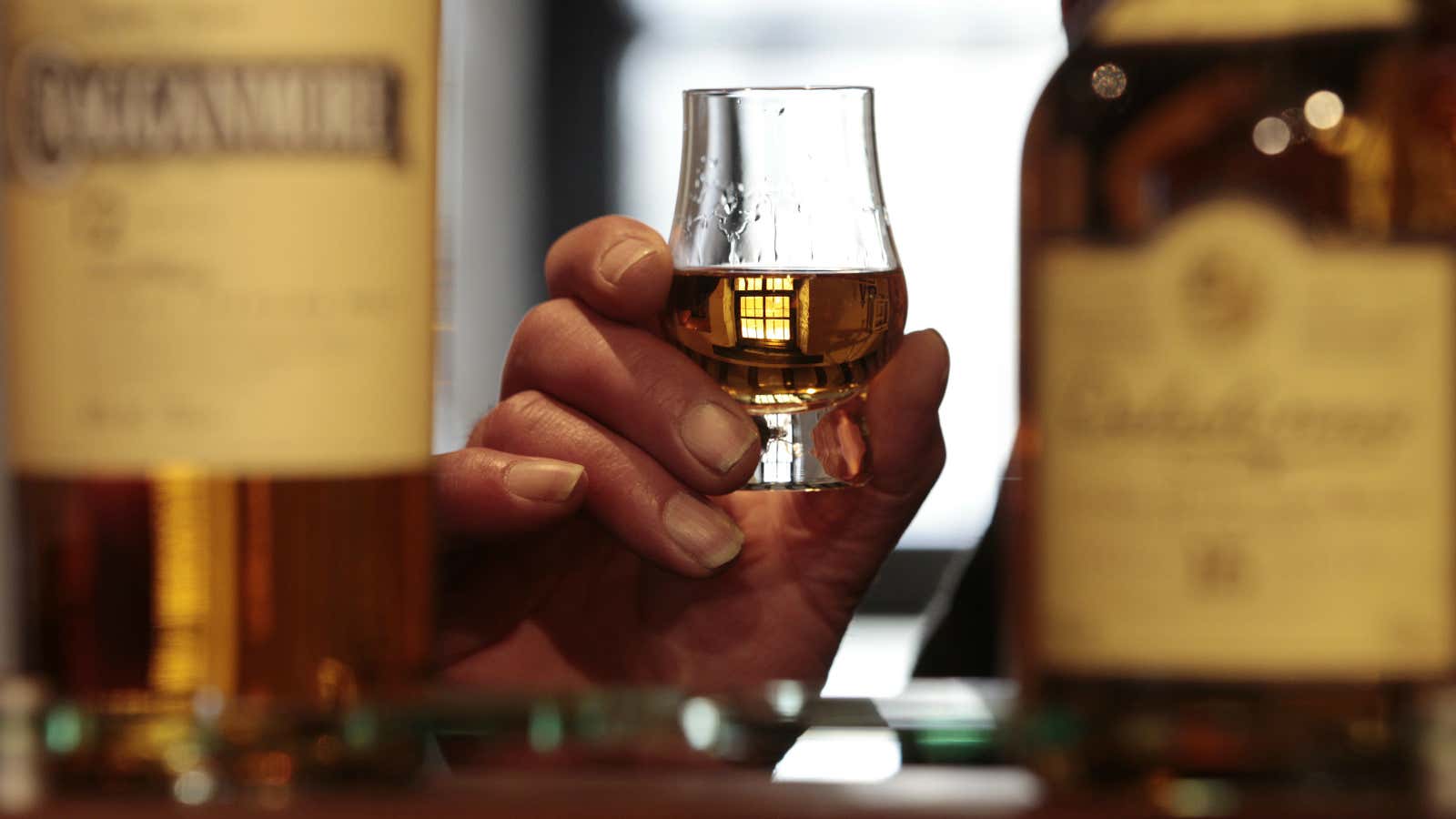Casks made of Indian wood, locally fermented spirits, and nanotechnology to preserve the flavour: United Spirits (USL) is doing some serious research to help Indians get high.
The maker of popular brands such as McDowell’s No. 1 and Royal Challenge whisky is tapping India’s finest science and technology institutes to bring the best out of its tipple, a top company executive told The Economic Times Newspaper.
In the works is research with The Forest Research Institute to develop casks made of Indian wood instead of American oak wood to help develop new flavours. The Central Food Technological Research Institute in Karnataka is helping it develop traditional Indian drinks. Students from two of India’s premier technology institutes, i.e. the Indian Institutes of Technology (IIT)—Kharagpur and Madras, are working on projects that will, among other things, hasten the maturation process for alcoholic drinks.
However, it could be a while before anything tangible turns up from all this research.
The idea to collaborate with institutes came after a USL team approached IIT-Kharagpur to help resolve the issue of the deteriorating quality of bottled beverages, Shovan Ganguli, senior vice-president for research and development (R&D) at the company, told The Economic Times. The students then introduced them to nanotechnology (in packaging materials) that could prevent loss of flavour even when the bottles are exposed to sunlight for long.
The project with IIT-Madras, due to begin next month, will help it reduce the maturation process from the current 24 hours to six hours.
The move to spur innovation in India comes as Diageo Plc, which holds a 38% share in India’s $22-billion whisky market, is looking to boost sales. Majority owned by British spirits maker and the world’s largest distiller, Diageo, USL is also looking to rebuild its portfolio.
The company posted Rs9,091 crore in revenue and a net profit of Rs981 crore in the financial year 2016.
The Indian spirits market has been in a slump lately as consumers go easy on binge drinking. Besides, regulatory hurdles such as high taxes and liquor bans, too, have slammed the brakes on the high-growth rates once enjoyed by the industry. Companies are trying various strategies to revive the mood.




